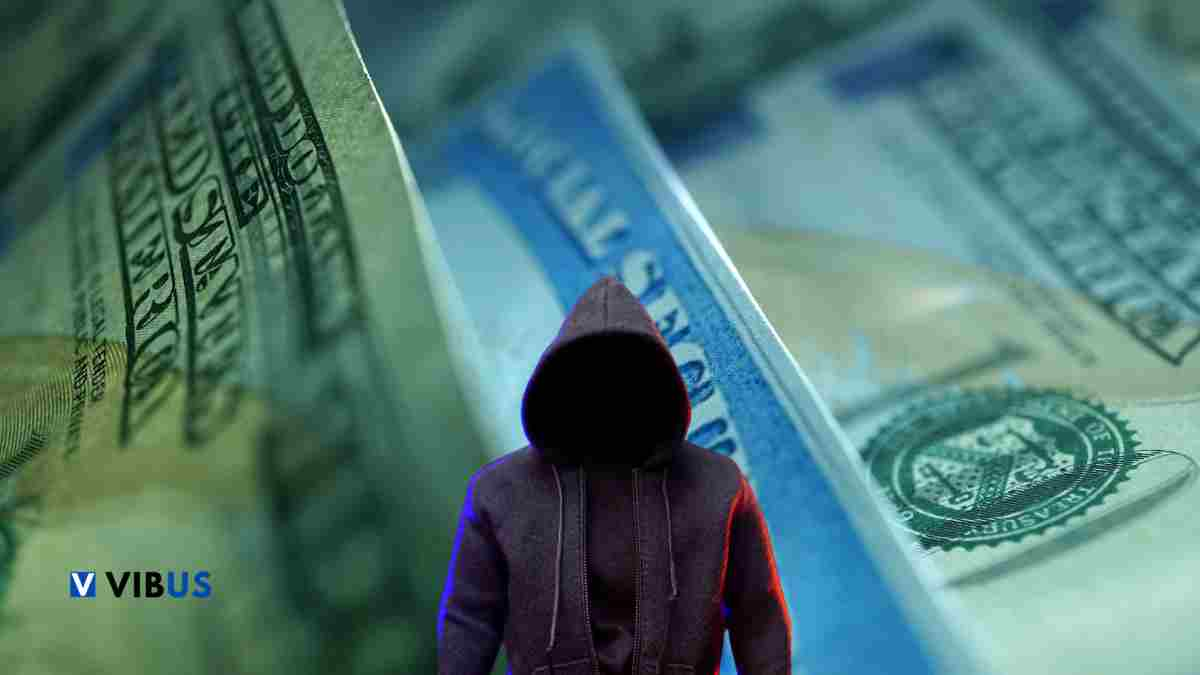A recent cyberattack has raised alarms for millions of people in the United States. This time, hackers gained access to a massive database containing sensitive personal information, including birthdates and Social Security numbers. The breach is believed to potentially impact the majority of citizens, sparking significant concerns about the risk of identity theft among those whose information may have been compromised.
The incident, which took place in April, has exposed the vulnerabilities in the security systems that manage our personal data. The company responsible for the breached database appears to be a background check firm, which would explain the extensive amount of information exposed, estimated at around 2.7 billion records.
Why it’s concerning if your Social Security number is leaked
Your Social Security number is one of the most valuable pieces of information for cybercriminals. With it, combined with other personal details like your birthdate, they can open bank accounts, apply for loans, and make purchases in your name. This type of fraud, known as identity theft, can have devastating consequences for your finances, potentially leaving you with debt and credit issues through no fault of your own.
The challenge with data breaches like this is that it’s not always immediately apparent if you’ve become a victim of identity theft until it’s too late. You might go about your daily life unaware that someone else is using your information for their own gain. That’s why, in situations like this, it’s crucial to take preventative measures to protect your credit and prevent criminals from exploiting your information.
How to protect your credit by freezing your reports
One of the most effective ways to safeguard your credit is by freezing your reports with the major credit agencies: Equifax, Experian, and TransUnion. When you freeze your credit, you prevent anyone—including yourself—from opening new accounts in your name unless you first unlock it. This process is simple, quick, and entirely free.
Freezing your credit doesn’t affect your current accounts. You can continue to use your credit cards and bank accounts without any issues. What you’re doing by freezing your credit is adding a layer of protection, making it nearly impossible for anyone else to open a new line of credit without your permission.
If you need to apply for a loan, open a new account, or sign up for a service that requires a credit check in the future, you can temporarily unfreeze your credit. This process is just as straightforward and can be done in minutes through the credit agencies’ websites.
Should you freeze your credit even if you haven’t been a victim of fraud?
Even if you haven’t fallen victim to identity theft, freezing your credit is a proactive security measure that can save you a lot of headaches down the road. The Federal Trade Commission (FTC) in the United States recommends this practice as a way to protect yourself from potential fraud, especially after a major data breach like the one that just occurred.
Keeping your credit frozen doesn’t interfere with your everyday life. You can still use your credit cards, open checking accounts, rent an apartment, or apply for jobs without any problems. The credit freeze only impacts new credit requests, which means any fraudulent attempts will be automatically blocked.
Fraud alerts: an additional layer of security
In addition to freezing your credit, you can add a fraud alert to your reports. This alert notifies lenders and creditors that they should take extra precautions before opening an account in your name. Typically, this involves them calling you to verify your identity before approving any credit requests.
Fraud alerts are especially useful if you suspect your information may have been compromised but aren’t certain if you’ve been a victim of identity theft. These alerts are free and can be set up with just one of the credit agencies, which will then inform the other two.
Regularly check your credit report
Another preventative measure you can take is to review your credit report at least once a year. You’re entitled to a free credit report every 12 months from each of the three major agencies. By reviewing your report, you can spot any suspicious activity, such as accounts you don’t remember opening or credit inquiries you didn’t authorize.
If you find something out of the ordinary, act quickly to investigate and resolve the issue. The sooner you detect potential identity theft, the easier it will be to minimize the damage.
Identity monitoring services: are they necessary?
There are identity monitoring services you can subscribe to that will keep an eye on your personal information and alert you if they detect any unusual activity. While these services can offer an additional layer of security, they’re not strictly necessary if you’re already taking steps like freezing your credit and regularly checking your reports.
The decision to use one of these services depends on your level of concern and the amount of information you feel could be at risk. If you manage many accounts or have reasons to believe you might be a target for cybercriminals, it might be worth considering one of these services.




